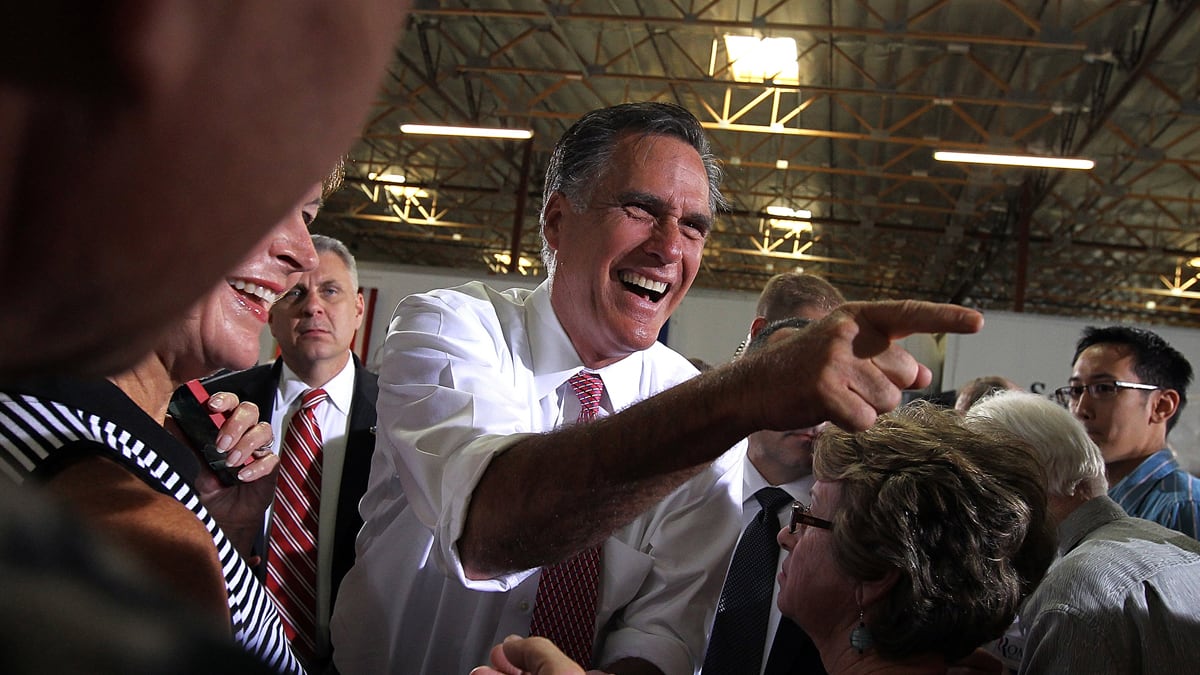Things are always bigger in Texas. The Lone Star State held its primary elections Tuesday, with 152 delegates to the Republican National Convention, nominees in 36 House seats, and a fiercely contested U.S. Senate primary to boot. Although Texas’s elections were overshadowed in the media by the looming Wisconsin recall and by Donald Trump’s televised antics, they are still deeply consequential. Here are the five most important results from Texas:

Romney Is Officially the Nominee
Mitt Romney is now officially the Republican nominee. Many may have assumed that once Rick Santorum and Newt Gingrich dropped out and Ron Paul conceded, Romney had it locked down. But the fat lady didn’t sing until Romney raked in a massive delegate haul in the Texas primary, getting just under 70 percent of the vote. The result doesn’t change the former Massachusetts governor’s daily routine as the presumptive nominee—though it may ruin the fantasies of a handful of Paul diehards—but it is significant nonetheless.
Obama Avoids Embarrassment
Barack Obama officially clinched the 2012 Democratic nomination on April 3, after winning Wisconsin. Since then, the president has been embarrassed in Democratic primaries in West Virginia, Kentucky, and Arkansas, where he has failed to achieve 60 percent of the vote against nominal opposition. (The most embarrassing outcome was in West Virginia, where federal prison inmate Keith Judd won 42 percent of the vote.) But in Texas, Obama romped to victory, winning about 88 percent of the vote. It wasn’t perfect. Obama did lose Borden County, population 641, by a margin of 17–14 to perennial candidate John Wolfe. But it was close enough. This easy win for the president means the campaign is spared embarrassing stories about his weakness with whites, particularly of Scotch-Irish descent, in Appalachia and the South. Obama is still not likely to win Texas in November, but his strong performance has helped him clinch the next few news cycles.
Tea Party Senate Pick Survives
Tea Party favorite Ted Cruz received only a third of the vote in the Republican primary for the U.S. Senate seat being vacated by Kay Bailey Hutchison, finishing more than 10 points behind Lt. Gov. David Dewhurst. It doesn’t mean Cruz lost Tuesday night, however. Texas requires candidates to win an absolute majority in a primary, so the two will face off in a late-July runoff. Cruz, a half-Cuban former Supreme Court clerk for former chief justice William Rehnquist, is already being drooled over by Tea Partiers as a far more intellectual Marco Rubio. But he will have to make up a lot of ground against Dewhurst, the establishment candidate who is worth more than $200 million. In an effort to win the runoff, Cruz will likely try to woo the voters of former college football star Craig James, who ran as a fervent social conservative but couldn’t crack 5 percent of the vote. In deep-red Texas, the winner of the GOP nomination will be a shoo-in in the general election, and the result of the July runoff will determine whether the influence of the Tea Party will continue to grow in Washington.
Rep. Silvestre Reyes Near Losing His Seat
Seven-term Democratic Rep. Silvestre Reyes may be the one incumbent to lose his seat in a primary. Reyes faced a challenge in his safely Democratic and heavily Hispanic district from Beto O’Rourke, an Anglo former El Paso City Council member. Reyes was endorsed by Barack Obama and Bill Clinton but was the target of negative ads by the Campaign for Primary Accountability, an anti-incumbent super PAC. On election night, Reyes was trailing O’Rourke, and it was unclear if the congressman could force a runoff by holding O’Rourke under 50 percent of the vote. An exit poll showed voters in the district splintering along ethnic lines, with Hispanics favoring Reyes by about 9 percent and non-Hispanics overwhelmingly backing O’Rourke.
In contrast, Ralph Hall, the 89-year-old Republican considered to be the most vulnerable incumbent in the state, cruised to victory in his northeast Texas district. Hall, who is the oldest member of Congress, also was targeted by the Campaign for Primary Accountability, which spent more than $167,000 in ads against him. But Hall, despite the twin negatives in a GOP primary of more than 30 years in Congress and being a former Democrat—he switched parties only in 2004—managed to avoid a runoff.
Former Rep. Ciro Rodriguez Heads for Comeback
Former representative Ciro Rodriguez is the Michael Myers of Texas politics: it seems he can never be killed off. Despite being heavily outspent in the Democratic congressional primary against state Rep. Pete Gallego, Rodriguez finished first and in a strong position for a likely runoff.
After losing a tough primary in 2004 as an incumbent congressman as a result of Tom DeLay’s mid-decade redistricting in Texas and then failing to retake his seat in 2006, Rodriguez seemed a political has-been. Then a ruling by the U.S. Supreme Court forced Texas to adjust its districts. This put Rodriguez in a brand-new congressional district, which had to hold a special election. After a runoff in that race, he defeated incumbent Republican Henry Bonilla and returned to Congress. But he stayed in Washington only for two more terms before losing in the Republican tidal wave of 2010. Democratic Party leaders, concerned about how Rodriguez might fare in another close general election, rallied behind Gallego this year in what is considered to be the swingiest district in the Lone Star State. Rodriguez still has a tough path to make it back to Washington, D.C., but, considering his surprising performance Tuesday night, he’s one candidate who can never safely be counted out.





